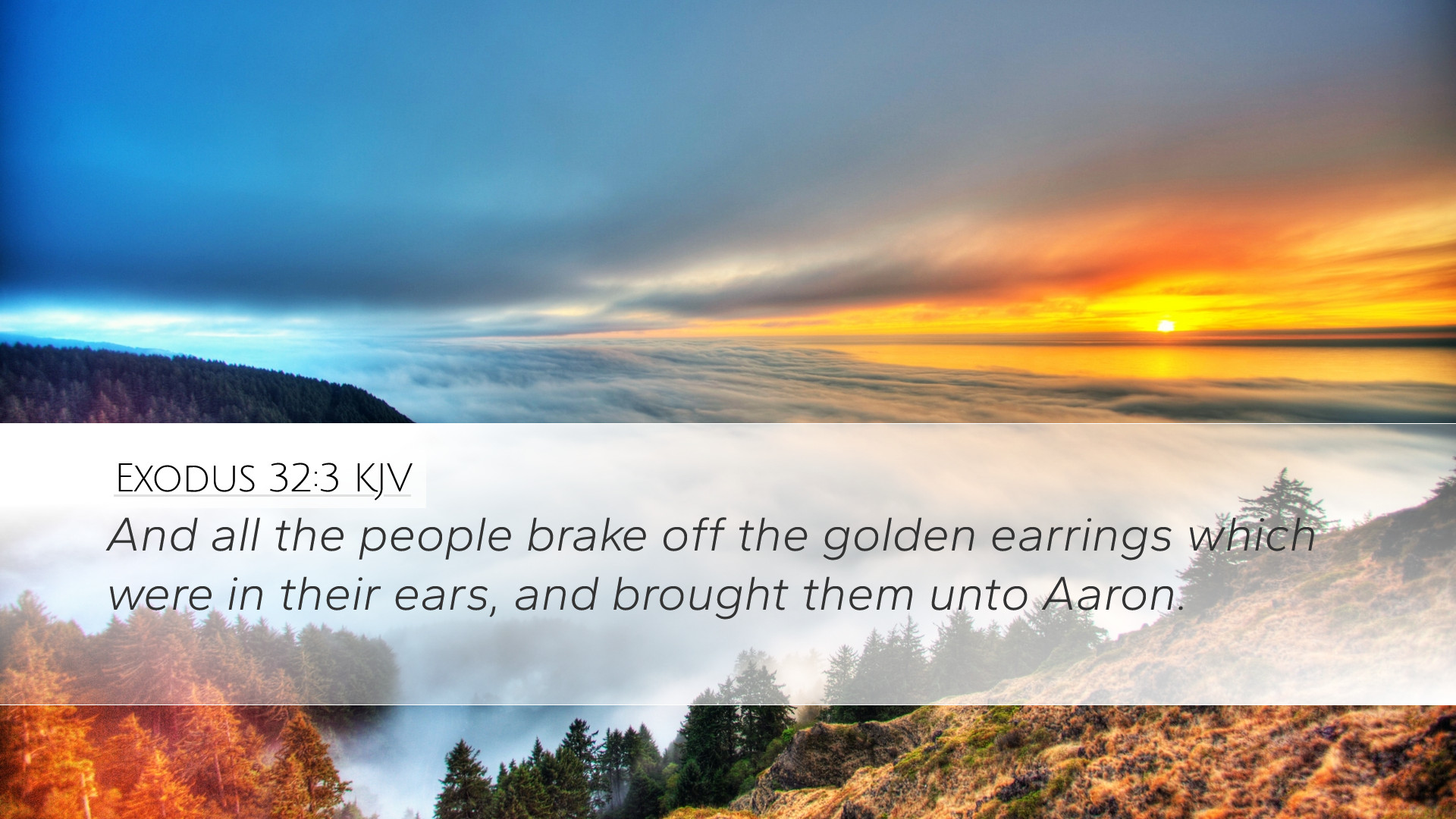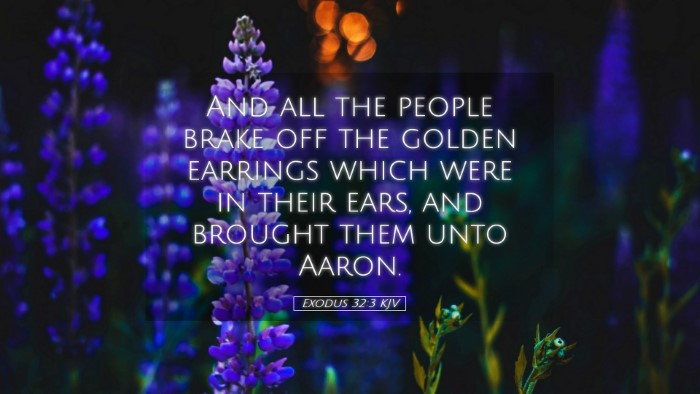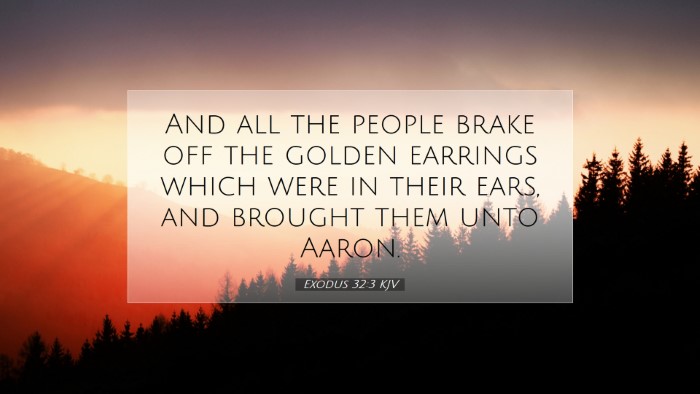Exodus 32:3 Commentary
Verse: “So all the people broke off the golden earrings which were in their ears and brought them to Aaron.”
In this pivotal moment of Israel's history, we witness a profound rupture in the covenant relationship between God and His people. The command to create a golden calf marks not just a lapse in faith, but a desperate turning away from the divine guidance that had been their aid through the wilderness. This commentary synthesizes insights from various public domain sources, focusing on the implications and theological nuances present in this verse.
Contextual Analysis
This episode occurs shortly after Moses ascended Mount Sinai to receive the Ten Commandments. The initial splendor of God's revelation and the giving of the law starkly contrast with the people's actions below. Matthew Henry comments on the nature of the people’s actions, indicating that they felt abandoned during Moses’ prolonged absence, leading them to seek tangible representation of the Divine.
People's Initiative
The verse clearly outlines the nature of the people's initiative. As Albert Barnes notes, the act of breaking off the earrings signifies not merely the physical act of giving gold but reflects a deeper spiritual impoverishment. The people’s desire for an intermediary between themselves and God reveals their misunderstanding of divine presence and holiness.
The Role of Aaron
Aaron's role in this narrative cannot be disregarded. Adam Clarke highlights that Aaron, despite being a figure of leadership, yielded to the pressures of the people. This highlights a tragic leadership failure. The tension between following God and yielding to popular demand resonates with contemporary issues facing religious leaders today, emphasizing the need for steadfastness amidst societal pressures.
The Symbolism of Gold
The use of gold in crafting the idol warrants attention. Henry points out that gold, often associated with value and divinity, here is corrupted into an object of idolatry. The transformation of something precious into a base idol serves as a vivid reminder of human inclination towards idol worship, a theme that recurs throughout scripture.
Theological Reflection
This passage provokes crucial theological questions regarding faith, leadership, and idolatry. The willingness of the people to participate in idol-making signifies a deeper spiritual malaise that leads to alienation from God. The creation of an idol manifests humanity’s perpetual struggle with the invisible and transcendent nature of God. Barnes articulates that this moment serves as a reflection of mankind’s temptation to replace the unseen with the seen, promoting immediate gratification over long-term devotion.
Implications for Today
For modern readers, Exodus 32:3 poses challenging questions. Are there 'golden calves' in our lives today? What tangible representations of our faith do we rely on that may detract from our relationship with God? Such introspection encourages a more profound commitment to uphold spiritual integrity in the face of cultural distractions.
Summary Points
- Leadership and Accountability: The passage emphasizes the importance of spiritual leadership and the consequences of failing to guide followers toward truth.
- Idolatry Today: It serves as a reminder of the subtle ways in which we can construct modern 'idols' that hinder our worship of God.
- Community Dynamics: The collective action of the Israelites calls attention to the influence of communal beliefs and actions on individual faith.
- Faith in Absence: The struggle of faith during times of absence or uncertainty is a recurrent theme in scripture and a critical area for pastoral care.
Conclusion
Exodus 32:3 is not merely a historical account; it is a vibrant reflection of the human condition. The complexities inherent in the relationship between God, leaders, and the community prompt ongoing theological discourse. As we seek to understand and apply the lessons of this text, it is imperative to earnestly pursue authenticity in our faith practices, remaining vigilant against the allure of idols in every form they may take.


